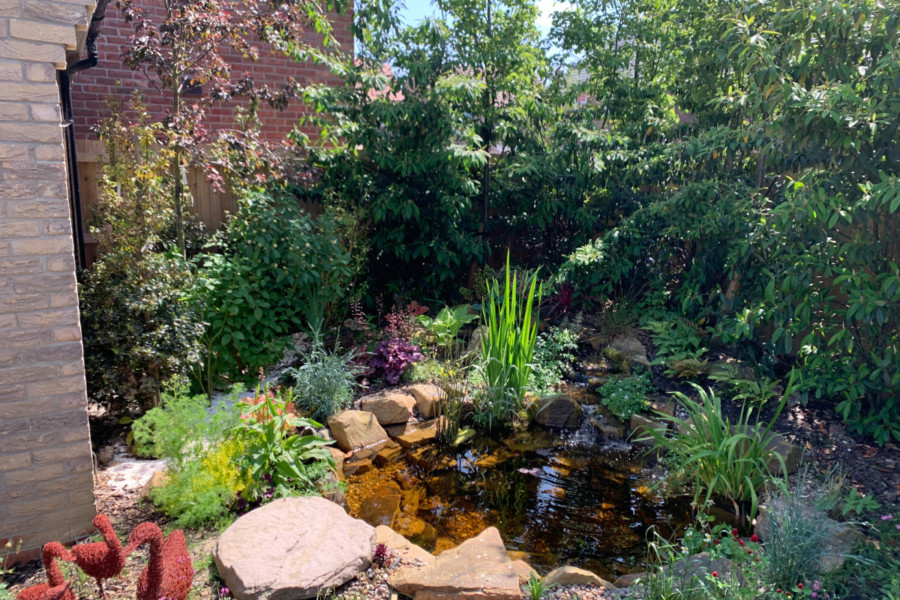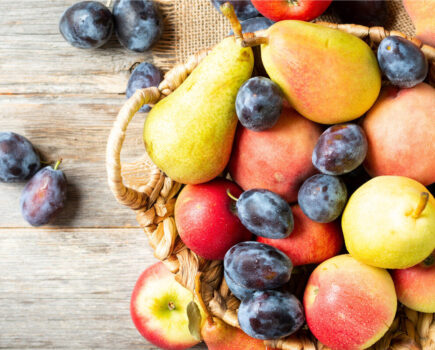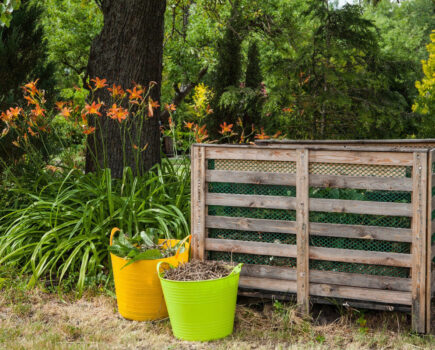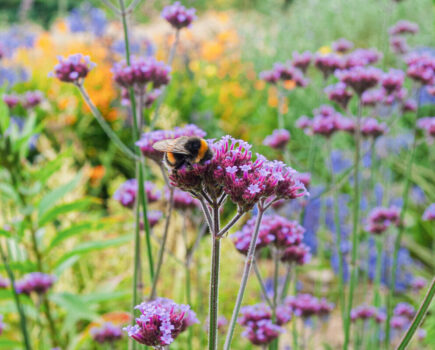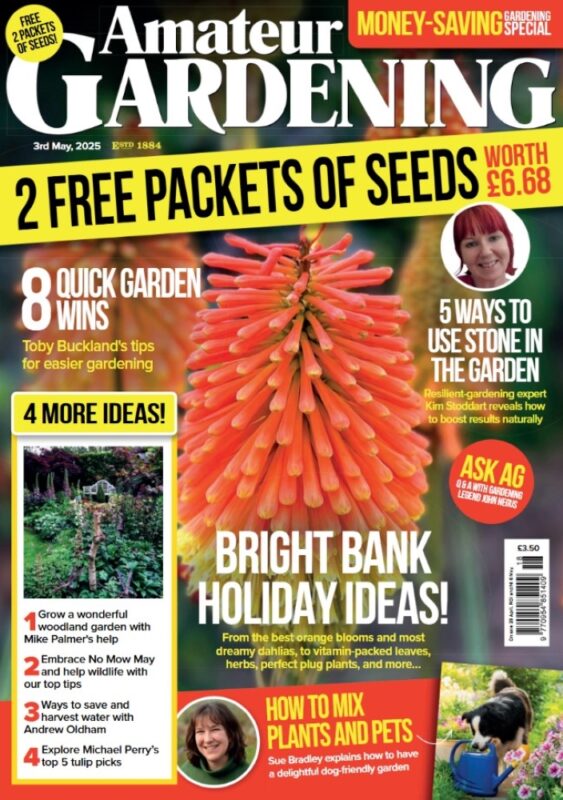A sanctuary garden that is giving back to the planet
Back in 2021, we moved from the south west back to Yorkshire (Beverley to be precise), having bought a new build property. It’s a lovely house, but as with a lot of new builds, all we had was a patch of dirt and builders’ rubbish for a garden.
I’ve always had an interest in plants, but had never considered myself to be a gardener. With a blank canvas to work with, I thought this was a real opportunity to give it a go! The first thing I thought about was screening, because we were overlooked by at least five different properties, and it felt very exposed to begin with. I didn’t want to go with the usual screening options, and opted for some ornamental pears and Cotoneaster cornuibas. The cotoneasters were 1.8m (6ft) three years ago and are now 6-7m (20-25ft)!
Once I’d established an effective screen it was time to think about doing what I really wanted to do, which was to create a wildlife haven. We worked with a local contractor to design and build a natural pond and stream in the garden, which also included an array of planting both in the pond and around the margins. The sound of fresh water running through the garden really does bring the sound of the countryside to the suburbs.
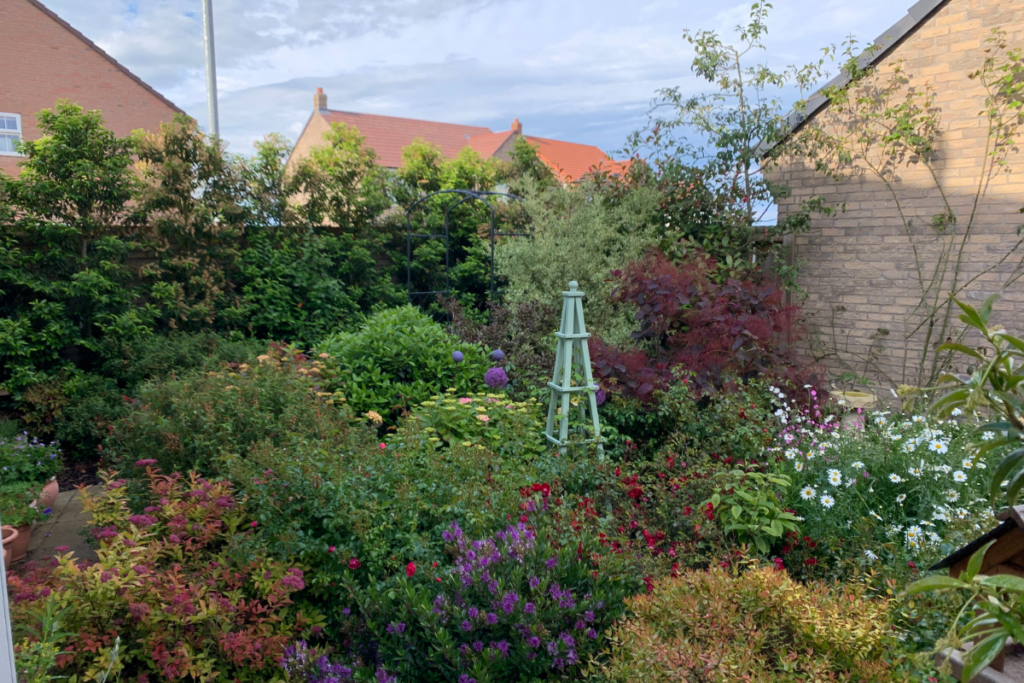
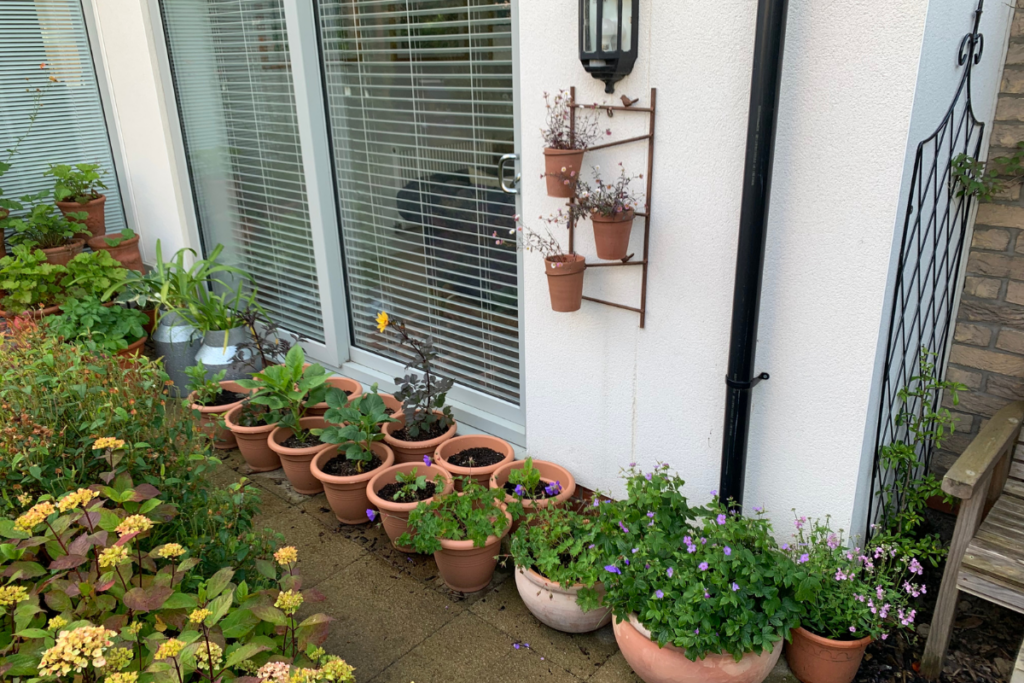
I then went about planting some wildlife friendly borders, with 16 types of rose, hydrangeas, viburnums, spirea and crab apples along with some Portuguese laurels to screen the other side of the garden. Things were really taking shape.
We also had an exposed wall of our garage that was perfect for climbing roses. We now have three, as well as six shrub roses planted below. I love roses, both for their longevity and variety – although I still haven’t figured out how to cure Blackspot!
The final step was to plant wildflower turf instead of a lawn, and this has been an incredible success. We had hundreds of bees and butterflies last year and will hopefully see more this year. We have also succeeded with the birds, several broods of blackbirds have come and gone as well as starlings, sparrows, and even a grey wagtail in our pond. The birds love the pond and regularly have standing baths in the stream.
I’ve also recently discovered the joy of pots, and my biggest challenge is going to be knowing when to stop.
At the end of 2022, my father was diagnosed with terminal cancer, and I’m still recovering from the shock. My garden has been the outlet and the sanctuary I’ve needed to try to come to terms with things, and without it I don’t know what I would have done. I really believe that new-build owners have a responsibility to give back. I see it that we are taking something from nature by having our house, and I want to give back in the garden to reduce our footprint on the planet and the local environment.
If I was to offer advice it would be to just go for it. Three years ago, I knew almost nothing, and still don’t know as much as I’d like, but every day is a new learning experience, and mistakes and failures make you even more satisfied with the successes.
We would like to hear about your gardens. Please write or email in editor@amateurgardening.com and tell us more. Roughly 500-800 words with a selection of images and tell us your gardening tales, tips and what your garden means to you. Those then selected to appear in the magazine will receive a thank you gift of gardening goodies worth at least £80.
Find more tips, advice and articles like this at the Amateur Gardening website. Subscribe to Amateur Gardening magazine now

